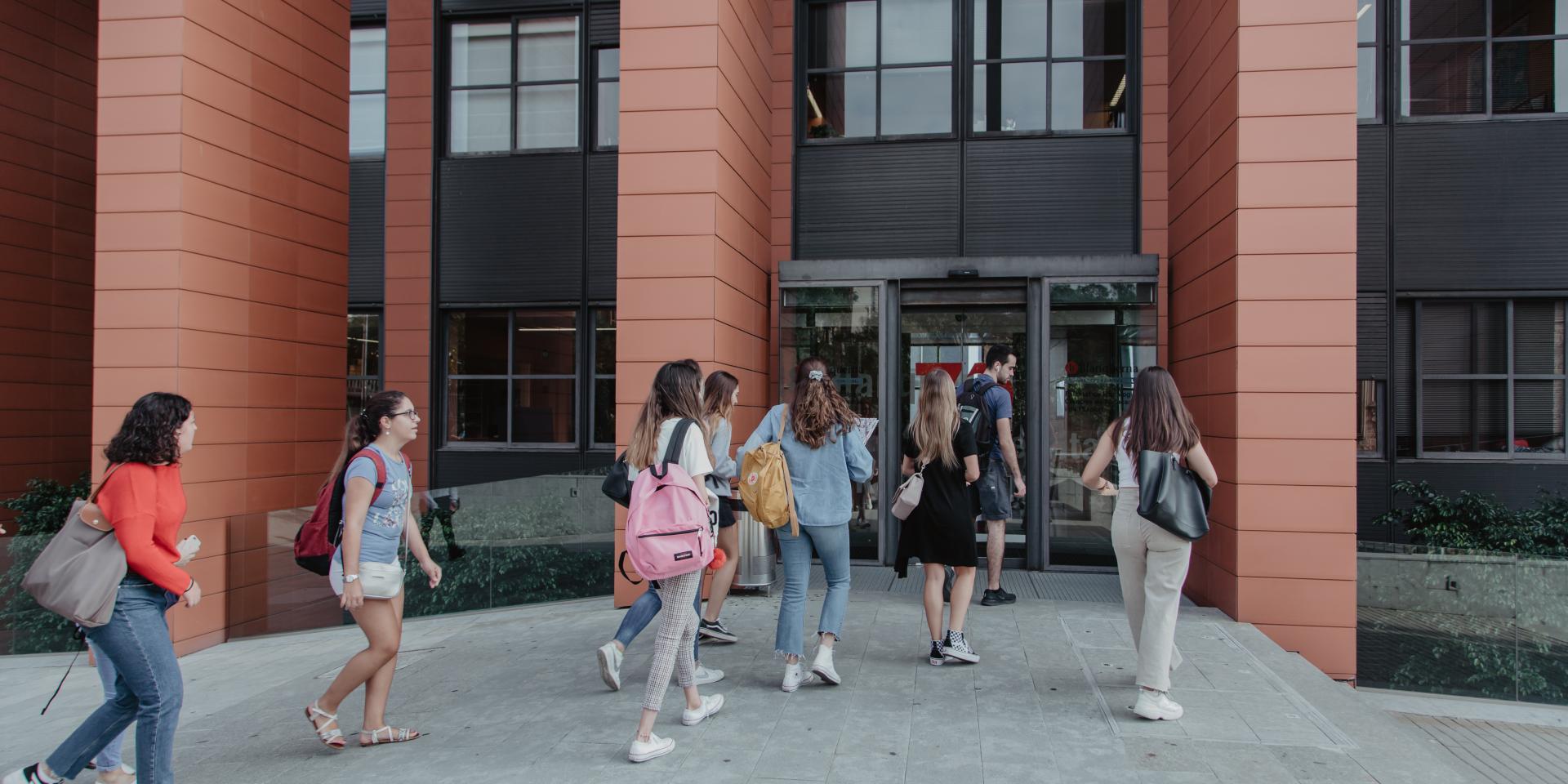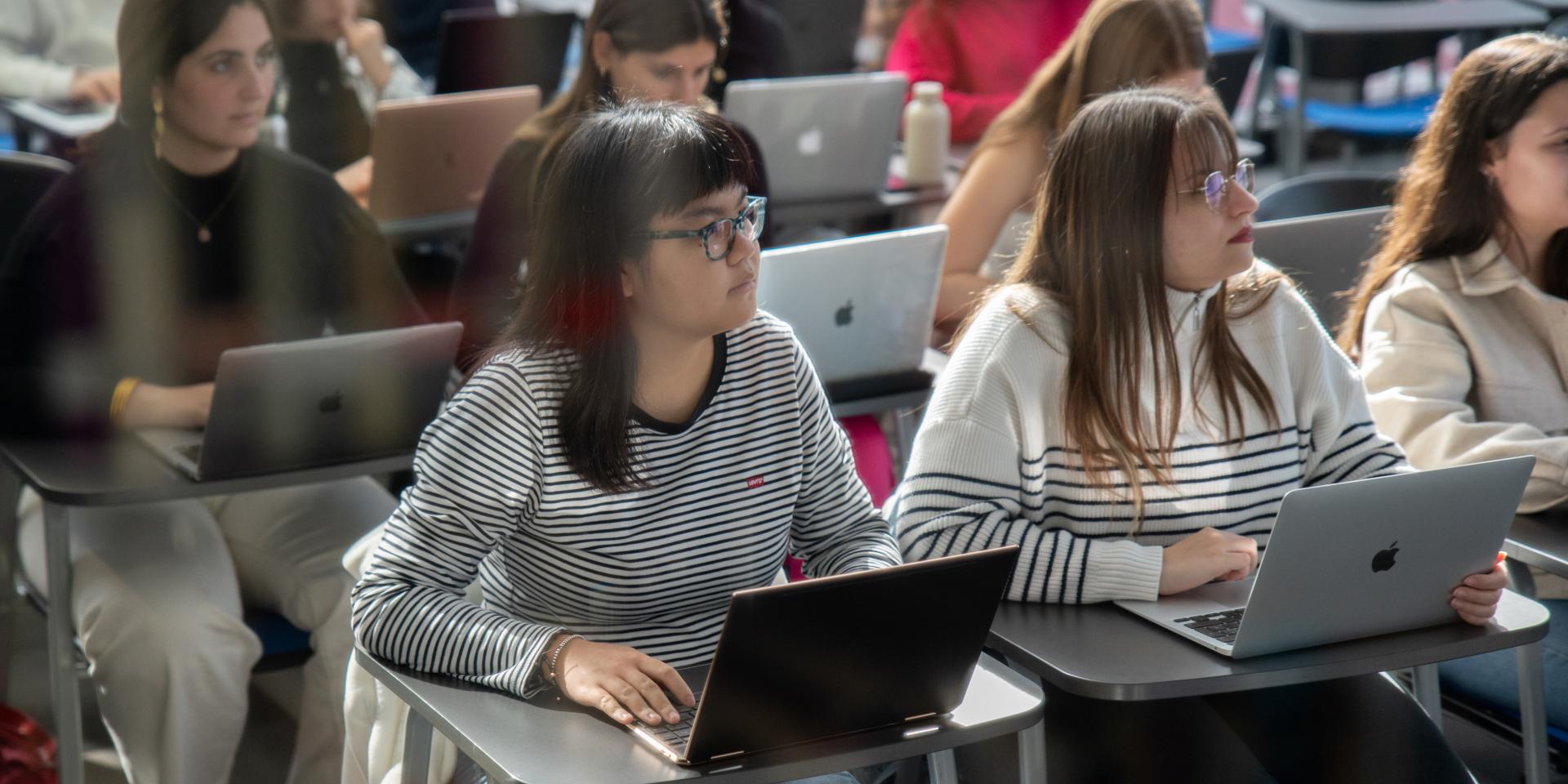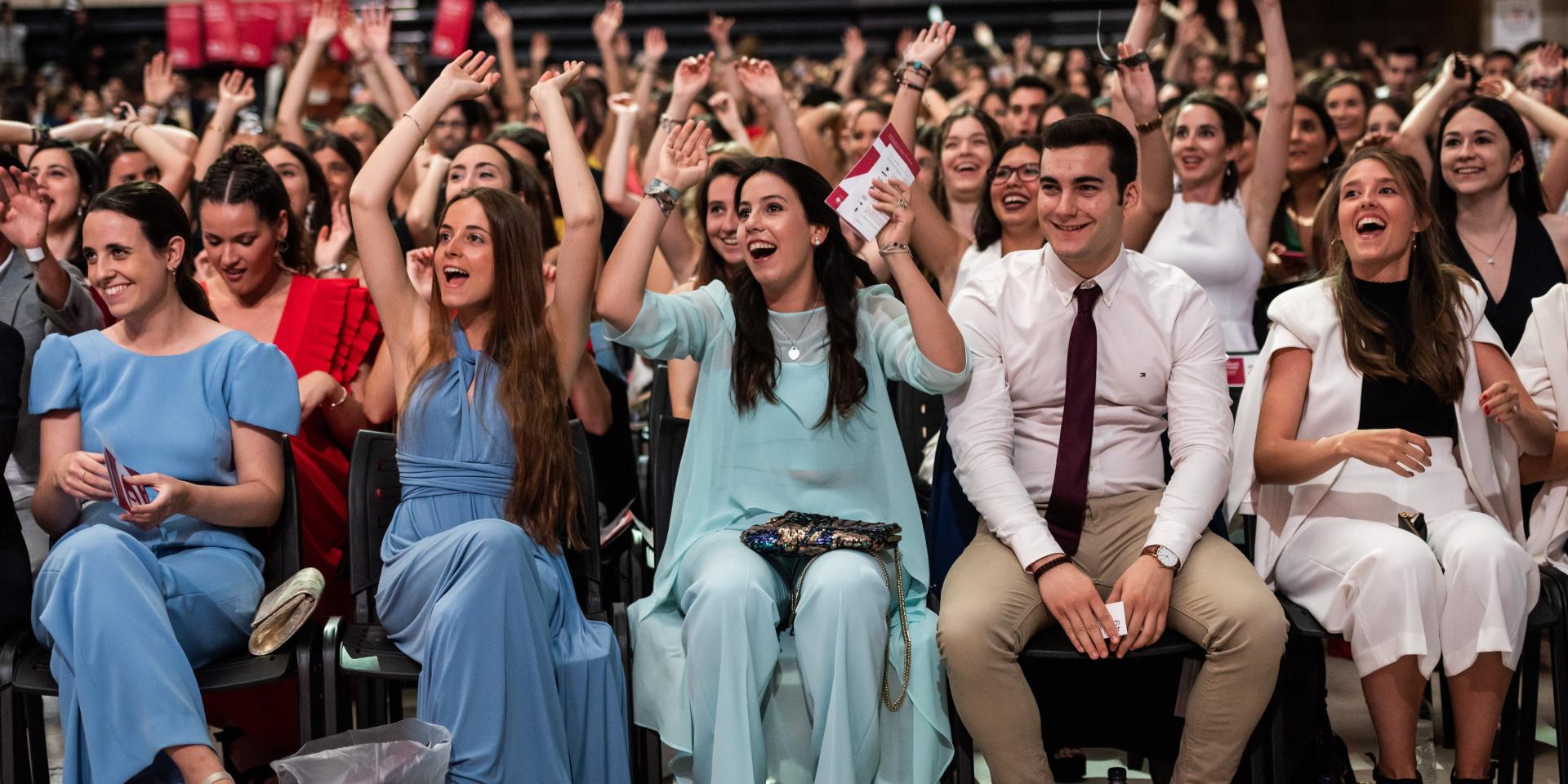Global communication
Global Communication forms the core of our program. Students delve into the subject through a range of modules that cover everything from communication theory to geopolitics, including the principles of global communication, intercultural communication and public relations.
In seminars, students gain practical experience and participate in communication projects using our radio studios and television sets.
In addition, the compulsory learning of a third foreign language highlights the international scope of this degree and the immersive experience in the field of global communication.



